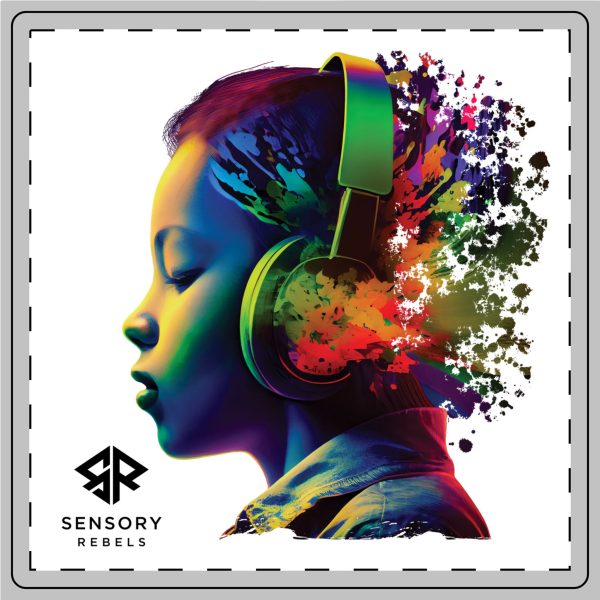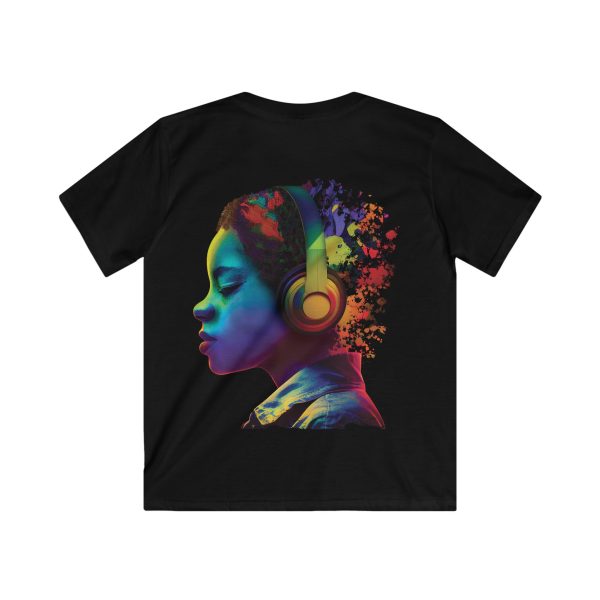No products in the cart.
Return To ShopIntroduction: The Moment of Realization
For many autistic adults, the journey to understanding their neurodivergence begins with a spark—a moment when the pieces of a lifelong puzzle start to fit together. Whether triggered by a family member’s observation, a child’s diagnosis, or a deep dive into research, discovering autism in adulthood can be both liberating and overwhelming. Inspired by a heartfelt discussion in an online community where users shared how they realized they were autistic, this post explores the unique paths autistic adults take toward self-discovery, the challenges they face, and the empowerment that follows.
“For autistic adults, discovering their identity often starts with a single moment that changes everything.”
🧩
#AutismAwareness #Neurodiversity
The Spark: How Autistic Adults Begin Their Journey
The online discussion that inspired this article began with a user whose parents noticed similarities between their behavior and a relative’s, leading to a suspicion of autism. This sparked months of intense research, with the user spending hours daily exploring autism’s traits. This story resonates with many autistic adults, whose paths to self-discovery often start with external cues or internal curiosity.
Common Triggers for Realization
- Family Observations: A relative’s diagnosis, like a child or sibling, prompts adults to see their own traits reflected.
- Media Representation: Shows like The Good Doctor or online content about autism spark recognition of shared experiences.
- Personal Struggles: Challenges with social interactions, sensory sensitivities, or burnout lead to researching neurodivergence.
- Community Connections: Engaging with online communities reveals shared traits and experiences.
“A family member’s diagnosis or a TV show can be the spark that leads autistic adults to discover their true selves.”
✨
#AutisticAdults #SelfDiscovery
The Role of Hyperfixation
Many autistic adults describe diving into autism research with a passion often linked to hyperfixation—a common autistic trait where individuals focus intensely on a specific topic. This deep dive can involve reading books, scouring forums, or watching videos to understand autism’s spectrum. For some, this process validates lifelong feelings of being “different.”
70%
of autistic adults are undiagnosed until adulthood, often discovering their neurodivergence through self-research.
The Power of Self-Diagnosis in the Autistic Community
One of the most striking themes in the online discussion was the validity of self-diagnosis. For many autistic adults, formal diagnosis is inaccessible due to cost, long waitlists, or dismissive professionals. Self-diagnosis becomes a powerful tool for understanding and embracing their identity.
Why Self-Diagnosis Matters
- Accessibility: Formal diagnoses can cost thousands of dollars or take years due to limited specialists, especially for adults.
- Validation: Recognizing autistic traits through self-research helps adults reframe past struggles as part of their neurodivergence.
- Community Support: Online spaces provide validation and shared experiences, reducing isolation.
- Empowerment: Self-diagnosis allows adults to advocate for their needs without waiting for external approval.
“Self-diagnosis is a lifeline for autistic adults, offering validation when formal diagnosis is out of reach.”
💪
#SelfDiagnosis #AutismAcceptance
Challenges of Self-Diagnosis
While empowering, self-diagnosis can come with doubts. Many worry about “imposter syndrome” or fear judgment from others who question their lack of a formal diagnosis. The online community emphasized that self-diagnosis is valid, especially when backed by thorough research and resonance with autistic traits like sensory sensitivities, social challenges, or intense interests.
1 in 5
Only this many autistic adults in the U.S. has a formal diagnosis, making self-diagnosis a critical step for many.
The Emotional Impact: Reframing a Lifetime
Discovering autism in adulthood often prompts a profound emotional shift. As online community members shared, the realization can bring relief, grief, and empowerment all at once. Understanding that struggles with social norms, sensory overload, or masking (adapting behaviors to fit in) stem from autism can reframe a lifetime of feeling “broken.”
Relief and Validation
For many, the diagnosis—whether formal or self-identified—explains why they’ve always felt different. It validates experiences like:
- Difficulty maintaining eye contact or understanding social cues.
- Overwhelm from loud noises, bright lights, or crowded spaces.
- A need for routine or intense focus on specific interests.
“Learning you’re autistic as an adult can feel like finally finding the missing piece of your puzzle.”
🧩
#AutismJourney #Neurodivergent
Grief and Reflection
Some autistic adults experience grief for the years spent masking or struggling without support. Community members described reflecting on childhood bullying, workplace burnout, or strained relationships, now understood through the lens of autism. This grief is often paired with a desire to unmask—embracing authentic behaviors without societal pressure.
Empowerment Through Understanding
The online discussion highlighted how discovery leads to empowerment. Armed with knowledge, autistic adults can seek accommodations, set boundaries, or connect with supportive communities. Books like Unmasking Autism by Devon Price were frequently recommended for navigating this journey.
“Discovering autism in adulthood isn’t just about understanding—it’s about reclaiming your identity.”
💙
#AutismEmpowerment #Unmasking
Navigating Life After Discovery
Once autistic adults recognize their neurodivergence, the question becomes: what now? The online discussion offered practical advice for moving forward, from seeking support to advocating for needs.
Seeking Support
- Therapists Specializing in Autism: Finding professionals experienced with autistic adults can help process the diagnosis and develop coping strategies.
- Online Communities: Digital spaces offer safe environments to share experiences and learn from others.
- Books and Resources: Titles like Unmasking Autism and Neurotribes by Steve Silberman provide insights into autistic identity and history.
“From online communities to books like Unmasking Autism, autistic adults are finding the tools to thrive.”
📚
#AutismSupport #Neurodiversity
Advocating for Needs
Autistic adults often need accommodations to navigate workplaces, social settings, or daily life. Community members suggested:
- Workplace Accommodations: Requesting quiet spaces, flexible hours, or clear communication.
- Setting Boundaries: Saying no to overwhelming social events or sensory-heavy environments.
- Educating Others: Sharing autism resources with friends or family to foster understanding.
Embracing Unmasking
Unmasking—living authentically without suppressing autistic traits—is a goal for many. Community members shared tips like:
- Practicing self-compassion when stimming (repetitive behaviors like hand-flapping).
- Communicating needs openly with trusted people.
- Finding environments that celebrate neurodiversity, like autism-friendly events.
80%
of autistic adults report masking their traits daily, leading to burnout. Unmasking is a step toward freedom.
Challenges and Societal Barriers
Despite the empowerment of discovery, autistic adults face significant barriers. The online discussion highlighted systemic issues that complicate the journey.
Lack of Adult-Focused Resources
Unlike children, autistic adults often struggle to find specialized support. Community members noted:
- Long waitlists for adult autism assessments (sometimes 2–5 years).
- Therapists untrained in adult autism, focusing instead on childhood interventions.
- A societal assumption that autism is “outgrown,” ignoring lifelong needs.
“Why is autism support so focused on kids? Autistic adults need resources too!”
😤
#AutismAdvocacy #NeurodiverseAdults
Stigma and Misunderstanding
Autistic adults often face skepticism about late diagnoses, with comments like “You don’t seem autistic.” This stems from stereotypes that autism is only visible in extreme forms or in children. Community members emphasized the spectrum’s diversity, with many “high-functioning” adults masking their struggles.
Financial and Access Barriers
Formal diagnosis can cost $1,500–$5,000 in the U.S., and many healthcare systems don’t cover adult assessments. This pushes many toward self-diagnosis, which, while valid, can leave them without access to legal accommodations.
$5,000
Autism assessments for adults can cost up to this much, leaving many to rely on self-diagnosis.
The Role of Community: Finding Belonging
Online communities exemplify the power of connection. Users shared how connecting with others who “get it” reduced isolation and provided practical advice. These spaces offer:
- Validation: Hearing others’ stories confirms personal experiences.
- Practical Tips: From coping with sensory overload to navigating relationships.
- Advocacy Inspiration: Learning how others advocate for accommodations or unmasking.
“Online communities remind us: you’re not alone on this journey.”
🤝
#AutismCommunity #Neurodiversity
Conclusion: Embracing the Autistic Identity
Discovering autism as an adult is a transformative journey, blending relief, reflection, and empowerment. As the online discussion showed, whether sparked by a family member’s observation or personal research, this realization helps autistic adults reframe their lives and advocate for their needs. While challenges like stigma, limited resources, and masking persist, the growing visibility of autistic voices—online and offline—is fostering a world where neurodivergence is celebrated.
If you’re an autistic adult or suspect you might be, know that your journey is valid. Dive into resources, connect with communities, and embrace your unique wiring. The path to self-discovery is just the beginning of living authentically.
“Autistic adults are rewriting their stories, one discovery at a time. Join the journey!”
🌈
#AutismPride #Neurodivergent
Related posts
Introduction: Questioning Neurodivergence For many adults, the question “Am I autistic?” arises after years...
Introduction: The Complexity of Autistic Communities Autistic communities, particularly online, are vital spaces for autistic...
Introduction: Envisioning Autism’s Future As autism diagnosis rates climb, questions about the future of autism...
Introduction: The Challenge of Autistic Burnout Autistic burnout is a harsh reality for many autistic...
Introduction: When Burnout Meets Life Crises Autistic burnout is a profound challenge for many autistic...


















Add comment
You must be logged in to post a comment.